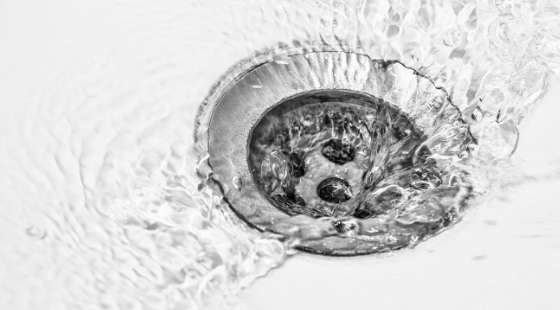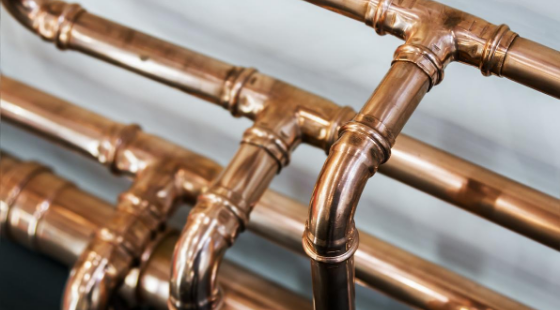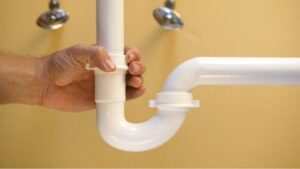Why Are My Drains Gurgling?

So, you’re doing the dishes at the kitchen sink, and suddenly, you hear a gurgling sound. Why are my drains gurgling? Gurgling is usually caused when there’s something that’s blocking air or water from flowing in your pipes. Water traveling slowly in your pipes forms air bubbles that create a gurgling sound.
There may be different things that cause the blockages that result in the gurgling sound. Experts at a Fox valley plumbing company highlight some of those factors:
A Blocked Sewer Line
This is the pipe that carries all the wastewater from all the pipes in your house to the septic tank or main sewer line in your yard or street. If you have a clogged sewer line, then all the pipes in your house will be affected.
However, if you aren’t sure whether your sewer line is clogged, try flushing the toilet upstairs. If sewage starts to overflow from any pipes below, it is likely blocked.
You might want to call a plumber immediately. Check out emergency plumbers in Fox Valley for affordable rates and efficient services.
Usually, the main blockages for sewer lines are due to:
- Broken pipes
- Bathroom products
- Tree roots (these are the most common cause)
Trees need water to survive. This water is usually absorbed using the roots underground. Roots can grow into old drains in search of water. They may cause the breakage of pipes, which may result in unplanned expenses.
Replacing pipes isn’t cheap, but you can contact Tureks Plumbing Services,
In Appleton, WI, bathroom products are the biggest cause of blockages in sewer lines.
Below is a list of bathroom products you should not be flushing down the toilet:
- Diapers
- Pads and Tampons
- Baby wipes
- Dental floss
- Q-Tips
- Tissues
- Paper towel
If you do flush them down the drain, please refrain from doing so frequently. Also, look for alternative means to dispose of your products.
A Blocked Vent System
The plumbing vent in your house allows air to pass through the pipes without interrupting the water flow. Drain or sewer vents usually extend to the outside of the house (mostly through the roof) from the waste pipes.
If your plumbing vent is clogged, then your plumbing system will not function.
To determine if your plumbing vent is clogged, you can:
- Try to listen for your pipes gurgling
- Observe the speed at which your water drains
- Smell for any bad odors that may be coming from your drain.
These odors are mostly caused by the gases and air that have been trapped in the pipes, which create a foul smell.
A Blocked or Damaged P-Trap
A P-Trap is a curved pipe that holds an amount of water under any sink in your house. The P-Trap’s main purpose is to create a water seal that prevents sewer gases from exiting through your drains, which protects your home from bad odors.
If your P-Trap has been damaged or has not been installed correctly, you’ll notice a stench when you flush the toilet or when water is flowing into your sink or shower drain.
If you can smell the sewage, then the time has come for you to replace your P-trap.
However, if your P-Trap is located in your wall or underground, please contact a professional from Tureks Plumbing Services.
I advise you not to DIY this, or it may end up costing you a lot more time and money, in the end, to repair it professionally.
A Blocked Drain
The main reason your pipes are gurgling could be either a partial or complete blockage. There’s a difference between the two and knowing how to differentiate between them is important.
A Partially Blocked Drain
A partially clogged drain is a few moments away from being a completely clogged one. To know whether you have a partially blocked drain, note how long it takes to drain water. If the water drains slower than usual and you can hear some gurgling, that means your drain is partially blocked.
The first thing you should do is clean your pipes using a pipe cleaner as soon as you notice your water draining slowly.
A Completely Blocked Drain
Ignoring a partially blocked drain and not cleaning it will result in a completely blocked one.
When the water rises in your bathtub or sink instead of draining, then you have a completely blocked drain.
Some of the causes of a complete drain blockage are:
- Hair
- Dirt
- Soap residue
- Dead skin
- Oils or grease
- Toilet paper build-up
Our friends at McQuillan Bros, a plumbing company in St. Paul, MN, agrees that if you have more than one drain in your house that is experiencing a blockage, this may indicate a blockage in your sewer line.
You should contact a sewer pipe repair company in Appleton, WI, to scope the line, that is, use a camera to inspect the reason for the clog. You can always count on Tureks Plumbing Services to provide 24/7 emergency services. We’ll restore your plumbing back to its original glory!





 One of the worst problems that any homeowner can ever have to deal with is a sewer backup. We’ve received many plumbing emergency calls from Appleton, Wisconsin homeowners asking Tureks Plumbing Services for help. Almost every time it’s a sewer backup. So, we’ve compiled the following common causes of why your home water may be slow so that you can know how to avert the avoidable factors behind this serious problem.
One of the worst problems that any homeowner can ever have to deal with is a sewer backup. We’ve received many plumbing emergency calls from Appleton, Wisconsin homeowners asking Tureks Plumbing Services for help. Almost every time it’s a sewer backup. So, we’ve compiled the following common causes of why your home water may be slow so that you can know how to avert the avoidable factors behind this serious problem.